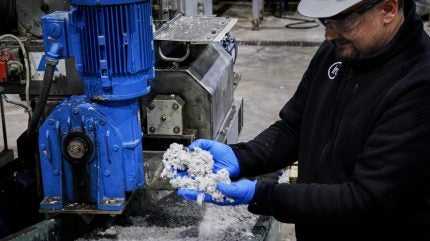
As part of the partnership, Arvind has committed to purchasing Circ’s lyocell staple fibre and polyester chips for integration into its large-scale apparel and garment manufacturing operations for a period of five years.
The agreement marks a significant step forward in scaling access to Circ’s recycled polyester and lyocell products and will expand the availability of next-gen
recycled fibres to the global brands Arvind serves — accelerating the adoption of textile-to-textile materials across the industry.

Discover B2B Marketing That Performs
Combine business intelligence and editorial excellence to reach engaged professionals across 36 leading media platforms.
“This partnership continues a new chapter in the textile industry where scale and
sustainability work hand in hand,” said Peter Majeranowski, CEO of Circ. “By joining
forces with one of the largest players in global textiles, we’re making textile-to-textile fibres available to more brands and unlocking circularity at true commercial scale.”
With its extensive global supply chain relationships and large customer base, Arvind will help accelerate the commercialisation of Circ’s circular materials and bring them into widespread use.
The partnership builds on a longstanding relationship between the two companies, including multiple product trials and collaborative initiatives — most notably Circ’s Fiber Club. As an established manufacturer, Arvind’s ability to purchase and integrate recycled fibres into its own production processes means that multiple brands can now access Circ’s circular inputs.
“Our partnership with Circ brings innovative, recycled materials into our supply chain at scale. It enables us to offer our brand partners high-quality, circular fibre solutions that align with our commitment to the future of sustainable fashion,” said Abhishek Bansal, senior vice president – sustainability, Arvind Limited.

US Tariffs are shifting - will you react or anticipate?
Don’t let policy changes catch you off guard. Stay proactive with real-time data and expert analysis.
By GlobalDataThe collaboration is expected to drive broader impact across the industry, lowering the barrier for brand partners to incorporate next-gen fibres and expand the reach of circular materials throughout the global apparel supply chain.





